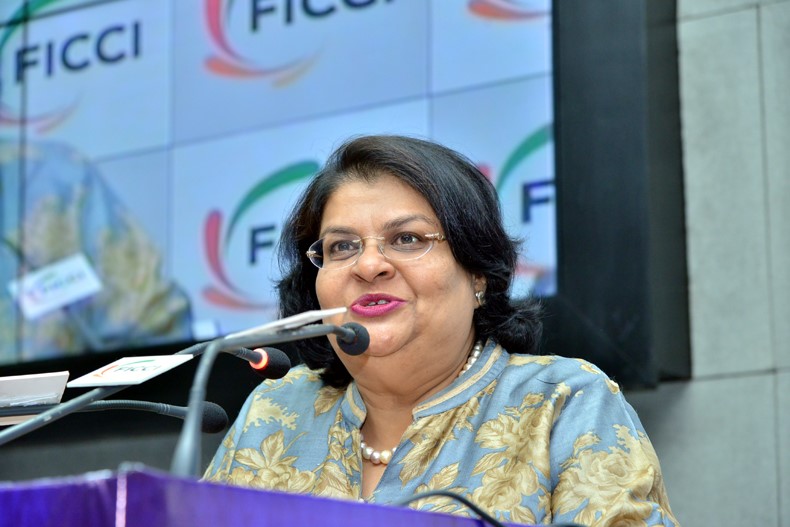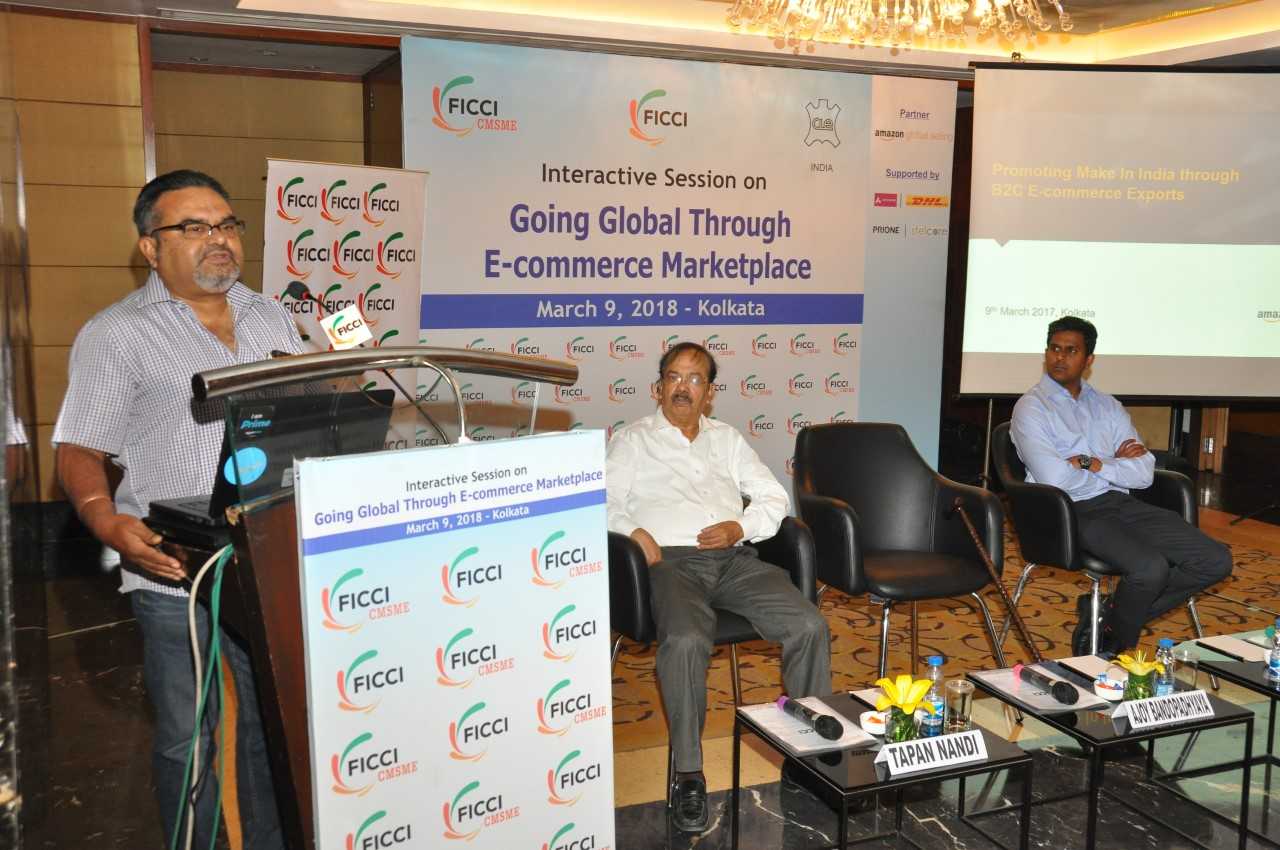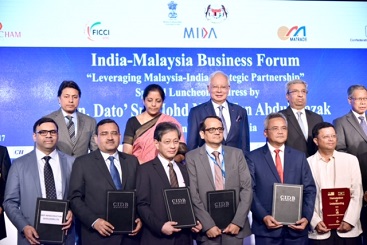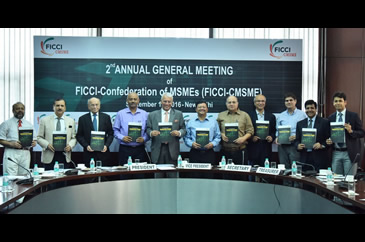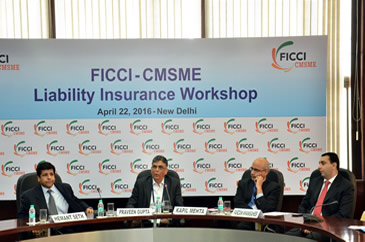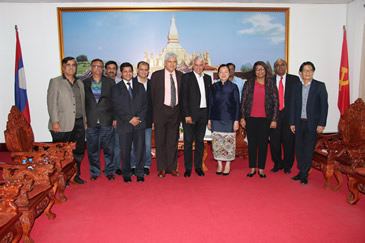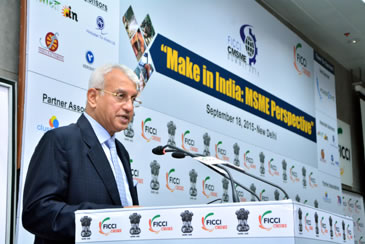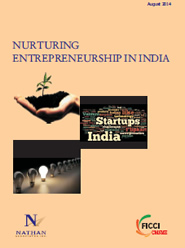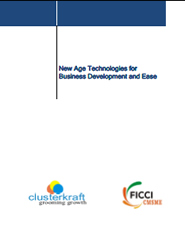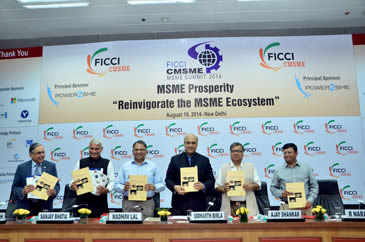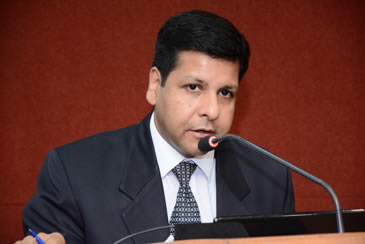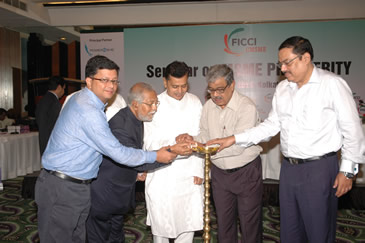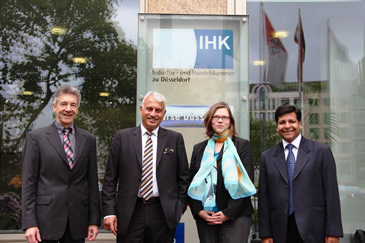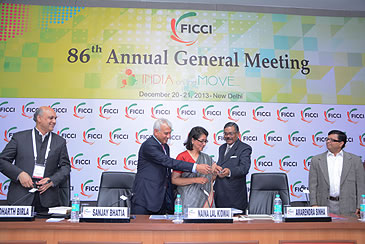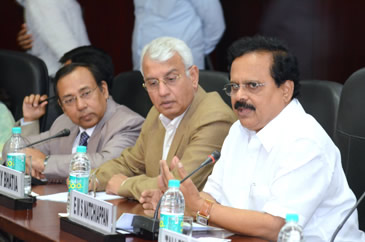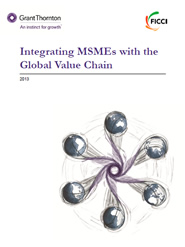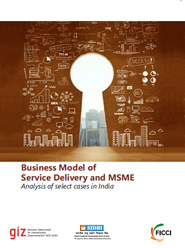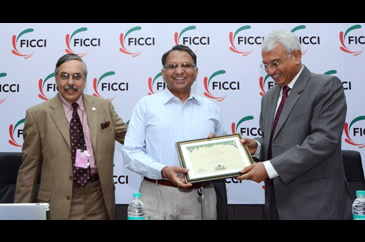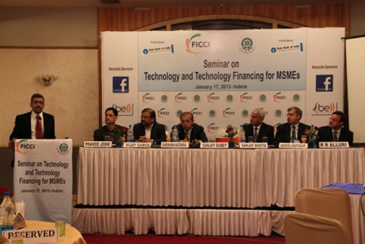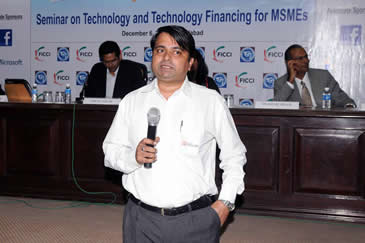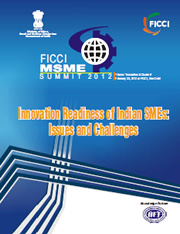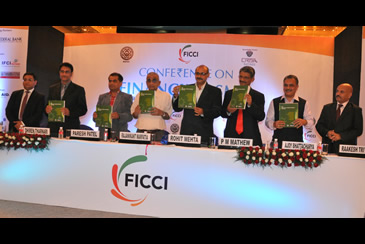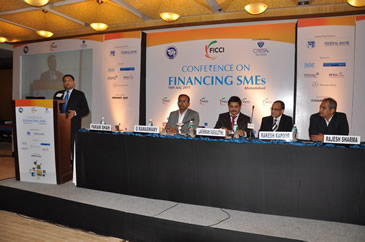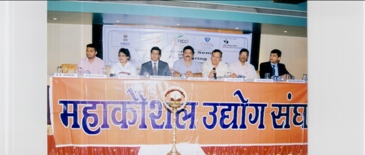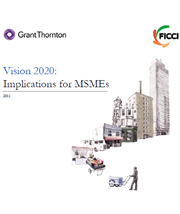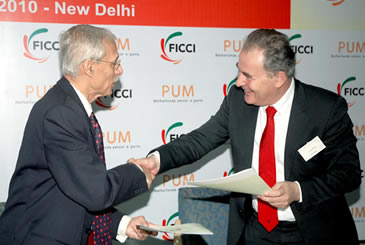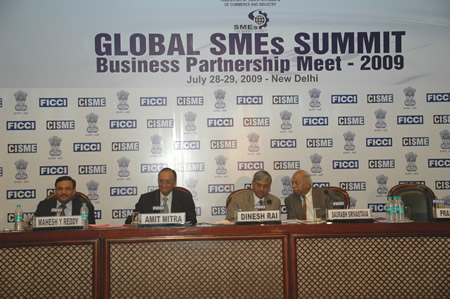Micro, Small and Medium enterprises are the pillar of economic growth of the country. Often rightly termed as "the engine of growth", MSMEs have played a prominent role in the development of the country in terms of creating employment opportunities (biggest employer after agriculture sector), scaling manufacturing capabilities, curtailing regional disparities, balancing the distribution of wealth, and contributing to the GDP significantly.
FICCI's Engagement
The MSME desk at FICCI has always been proactive in terms of taking up issues of MSMEs with the respective authorities and works closely with the Ministry of MSME and the Office of Development Commissioner and other stake holders. FICCI has an MSME Committee comprising of experts from all over the country which deliberates on areas that hinders the growth of the MSMEs and comes out with probable suggestions, recommendations for the Government. Besides, FICCI organizes Capacity Building programmes across the country to disseminate information and educate MSMEs about various trends, sectoral knowledge and skills. In December 2013 FICCI established the FICCI- Confederation of MSMEs (CMSME) which is an allied body under the umbrella of FICCI. FICCI-CMSME, as a pan India body, endeavors to play an active role as an aggregator for developing capabilities of especially Micro and Small enterprises in various aspects of their business and to connect them with mentors, incubators and accelerators.
Team Leader
Hemant Seth
Senior DirectorTimeline
MSMEs an important pillar of Indian economy; Govt taking steps to make them stronger and globally competitive: Bhanu Pratap Singh Verma, Minister of State for MSME, GoI
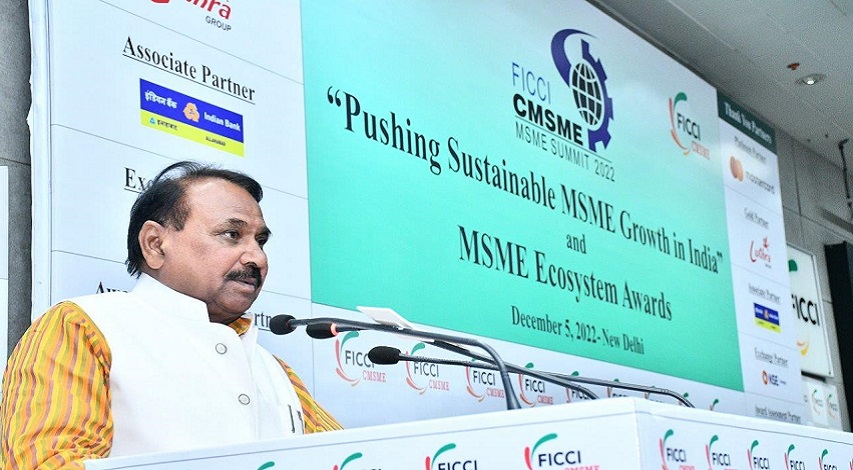
FICCI-CMSME: Annual MSME Summit 2022- Pushing Sustainable MSME Growth in India and MSME Ecosystem Awards
FICCI-CMSME Eighth Annual General Meeting: Special Session with Shri B.B. Swain, Secretary, Ministry of MSME, Government of India
Webinar on Taking Indian Products Global
FICCI-CMSME Seventh Annual General Meeting
Digital transformation, access to finance will act as catalyst for India's development story: Amitabh Kant, CEO, NITI Aayog
Enabling MSME Growth Through Financial Inclusion
Webinar on MSMEs Going Global: Apparel Exports to USA
Govt identifying schemes to benefit the MSMEs in service sector: Additional Secretary & Development Commissioner, Ministry of MSME, GoI
Invitational Virtual Roundtable on Inclusive and Sustainable Recovery of Indian MSMEs on the occasion of International MSME Day-2021
Virtual Summit on Realizing Growth Aspirations of SMEs through Digitalization of R&D
Industry underlines serious impact of farmers' agitation on the economy: FICCI-CMSME
Policy initiatives helping turbo-charge investments in Maharashtra; will benefit MSMEs and create Jobs: MoS for Industries, Govt of Maharashtra
Online Launch Programme for Announcement of FICCI-CMSME & BAA Series of knowledge webinars for helping MSMEs Explore Global Market Opportunities
Special Session with Shri Arvind Kumar Sharma, Secretary, Ministry of MSME, Government of India & Launch of FICCI-CMSME CONNECT Portal
FICCI-CMSME-UNIDO Online Symposium on Reinvigorating MSMEs to Leverage the Domestic and Global Value Chains
81% of eligible MSMEs in ECLGS are structurally strong: MD and CEO, TransUnion CIBIL
FICCI-CMSME & EY Webinar on Facilitating MSMEs in Re-joining the Growth Path
Revision in MSME definition will expand benefits to more units: FICCI
FICCI-CMSME Online Training Session on Opening of Units amid CORONA Crisis: Implementation of MHA Guidelines
FICCI-CMSME Webinar on COVID 19 - Meeting Financial Needs of MSMEs
Webinar on Rewiring SME Business Model
Webinar on COVID 19 - Government Interventions for Revival & Survival of Indian MSMEs and Way Forward
Stakeholders welcome to pro-actively suggest upgradations to IBC Regulations: Dr M S Sahoo, Chairperson, IBBI
Seminar on Facilitative Regime for MSMEs under IBC
Government to look into GST related issues in MSME sector: Nitin Gadkari
FICCI Workshop on Trade Finance for MSMEs
CPSEs felicitated for their exemplary performance in procurement of goods & services from SC-ST Entrepreneurs
Stakeholders Consultation Meeting under National SC/ST Hub - Creating Ecosystem for SC/ST Entrepreneurs

Creating a Market and Developing a Supportive Ecosystem for the SC/ST Entrepreneurs: State Level Buyer Seller Meets in partnership with the Ministry of MSME
FICCI, MSME Ministry to hold buyer-seller meets to create market and develop supportive ecosystem for the SC/ST entrepreneurs
FICCI welcomes loan-restructuring window for MSMEs
Gujarat encouraging SMEs and job creation in a big way: Gujarat CM Vijay Rupani
FICCI welcomes setting up of the GST council's panel for addressing MSME concerns
Marching towards Inclusivity: An initiative by FICCI Stakeholders Meet for Development and Promotion of SC/ST Entrepreneurs
Easing Norms for MSME Promoters in Bidding Under IBC Will Help in Speedy Resolution of Stressed Assets Cases: Rashesh Shah, President, FICCI
Need for a national e-commerce policy: Commerce Secretary
FICCI welcomes change in the criteria for MSME classification
FICCI joins hand with CSCC to promote SC-ST entrepreneurs interest and growth
Urgent need to recognize retail e-commerce exports as an industry
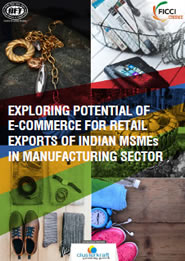
Exploring Potential of E-Commerce for Retail Exports of Indian MSMES in Manufacturing Sector
Launch of study: Exploring Potential of E-Commerce for Retail Exports of Indian MSMEs in Manufacturing Sector
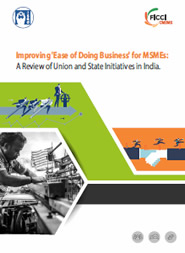
Improving Ease of Doing Business for MSMEs: A Review of Union and State Initiatives in India
Interactive Session with Mr. K K Jalan, Secretary, Ministry of Micro, Small and Medium Enterprises(MSME)
FICCI-Confederation of MSME applauds the new Framework by RBI for Revival and Rehabilitation of MSMEs
MSME Ministry to introduce single-page registration form
FICCI-Confederation of Micro, Small and Medium Enterprises presents action agenda to Govt. for ease of doing business
'Adding muscle to your Business' - FICCI-CMSME workshop for MSMEs
Interactive Session with Jeff Bezos, Founder & CEO, Amazon on Creating an enabling environment for SMEs in the digital economy
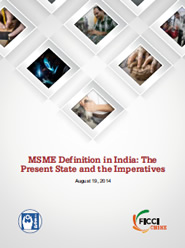
FICCI-ISED report on 'MSME Definition in India: The Present State and the Imperatives'
Mr Sanjay Bhatia, President, FICCI CMSME greets Hon’ble Minister for MSME, Mr Kalraj Mishra
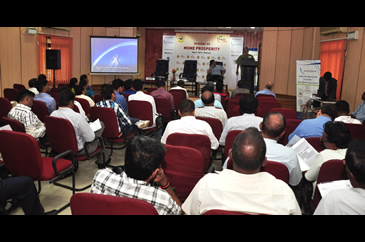
Confederation of Micro, Small and Medium Enterprises (CMSME) seminar on 'MSME Prosperity'
Seminar on MSME Prosperity
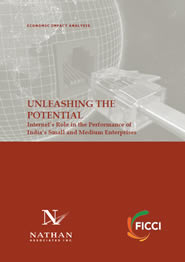
Unleashing the Potential Internet's Role in the Performance of India's Small and Medium Enterprises
Entrepreneur India 2013
India's MSMEs unable to make a dent in the global market; bogged down by regulatory compliances & lack of finance: FICCI-Grant Thornton Survey
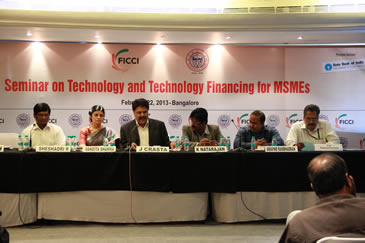
Opportunity to Get Free Advertisement on Facebook Page through FICCI Seminar on Technology and Technology Financing for MSMEs
Seminar on Technology and Technology Financing for MSMEs
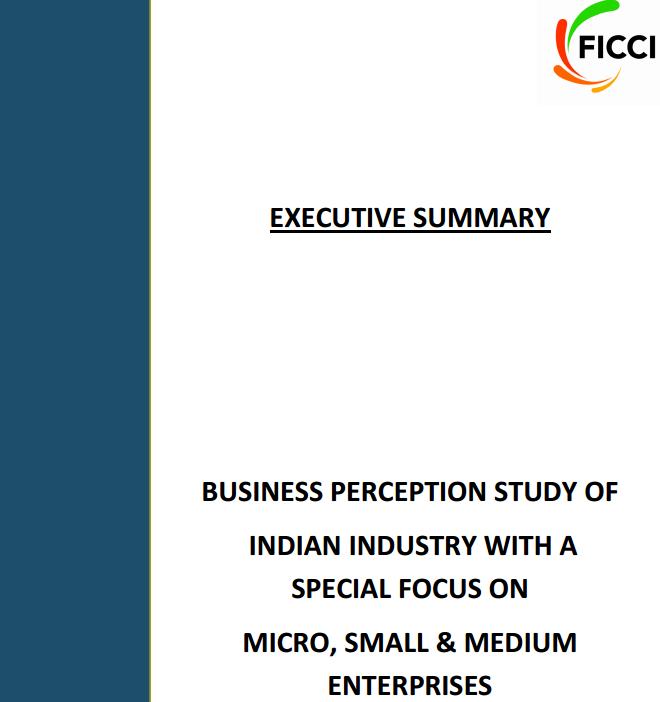
Business Perception Study of Indian Industry with a Special Focus On Micro, Small & Medium Enterprises
MSMEs call for rollout of GST, exchange rate correction to boost business growth: FICCI Study

Opportunity to get Free Advertisement on Facebook page through FICCI Seminar on Technology and Technology Financing for MSMEs
FICCI-Customer Lab SME Scorecard initiative : An Exclusive Workshop on Managing Growth and Profitability of SME
Enterprise Resource Planning (ERP), the least used ICT tool by SMEs: FICCI Study
Usage of Information & Communication Technology (ICT) tools by Indian SMEs and its impact on their business
FICCI and Facebook announce partnership to help Indian SMEs harness the power of the social media

Indian and Italian SMEs-a partnership for innovation: enhancing technology transfers, access to credit, cluster development and legal support
MSME Financing: Challenges & Opportunities
Design Sensitization Seminar on Light Engineering






